ASUS has a collection of motherboards available for AMD’s Ryzen 7000 series of processors. Utilizing the latest chipsets from AMD, there’s a good choice for anyone looking to build or upgrade a system. Today, we’re going to be looking at the ASUS TUF Gaming X670E-Plus WiFi, a mid-tier motherboard with the AMD X670 chipset.
The motherboard is one of the more important considerations for a PC since it’s what will be responsible for connecting all the different components together. We’ve put the ASUS TUF Gaming X670E-Plus WiFi to the test to see if it’s a contender for the best motherboard collection of recommendations.
ASUS TUF Gaming X670E-Plus WiFi: Price & specs
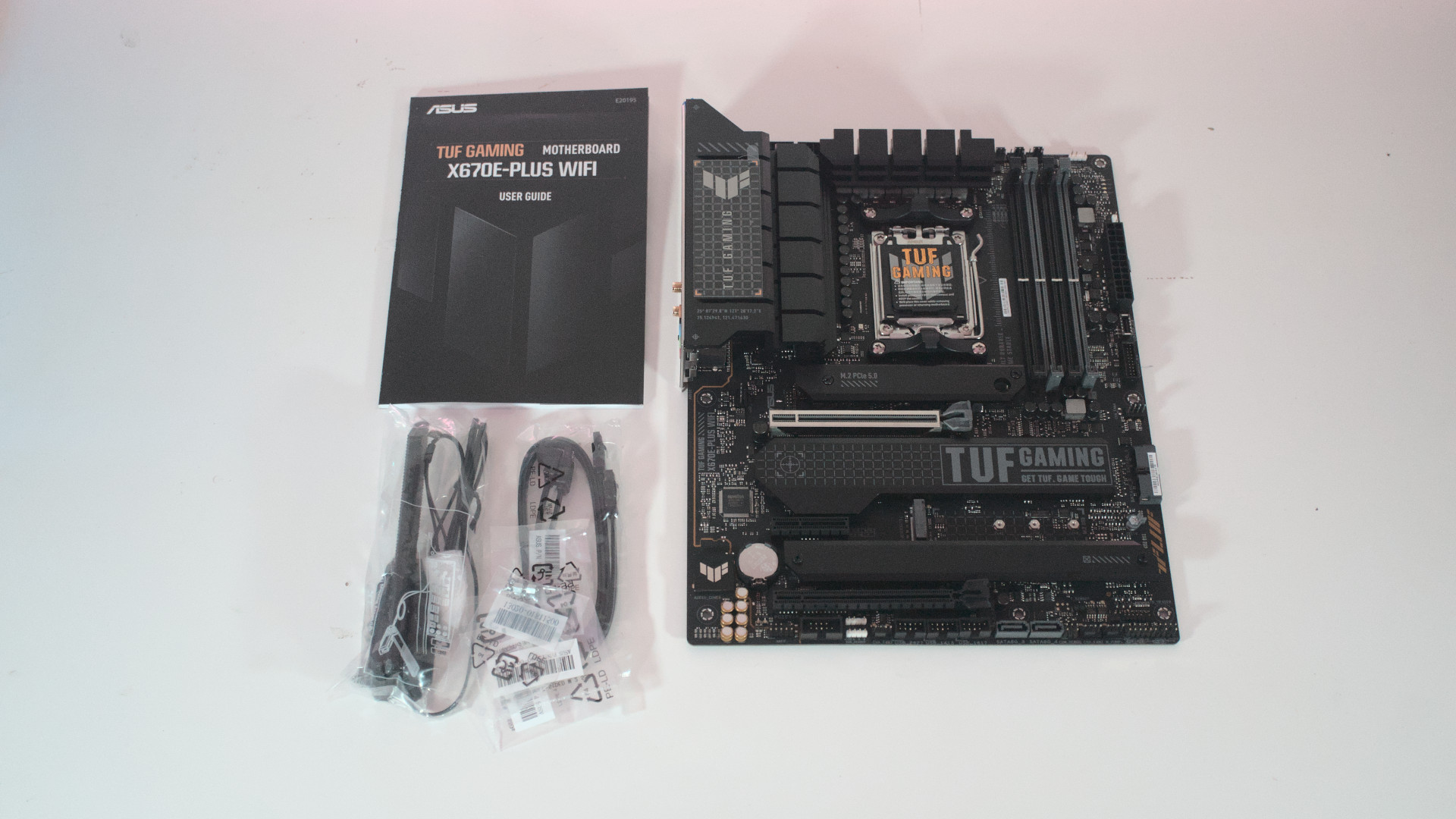
The ASUS TUF Gaming X670E-Plus WiFi is a mid-range motherboard aimed at PC builders who are wanting to put together a capable system for gaming and serious workloads. With full support for the latest AMD Ryzen 7000 processors, it’s possible to utilize this motherboard and install some very powerful components.
ASUS expects one to part with $330 at MSRP and we find that to be a reasonable price if a little on the pricey side. Considering the flagship NVIDIA GeForce RX 4090 GPU comes in at $2,000, we’re comfortable recommending something to the masses without an obscene price tag.
| Category | ASUS TUF Gaming X670E-Plus WiFi |
|---|---|
| Size | ATX |
| CPU | AMD Ryzen 7000 |
| Socket | AM5 |
| RAM | 4x DDR5 DIMM (up to DDR5-6400+), 128GB limit |
| Chipset | AMD X670 |
| Expansion | 1x PCIe 5.0 x16 |
| 1x PCIe 4.0 x16 | |
| 1x PCIe 4.0 x4 | |
| Storage | 4x SATA (6Gbps) |
| 1x M.2 2242/2260/2280 (PCIe 5.0 x4, SATA) | |
| 2x M.2 2242/2260/2280 (PCIe 4.0, SATA) | |
| 1x M.2 2242/2260/2280/22110 (PCIe 3.0, SATA) | |
| Audio | Realtek S1220A |
| Rear ports | BIOS FlashBack Button |
| 1x 2.5G LAN | |
| 1x ASUS Wi-Fi | |
| 4x USB-A 3.2 Gen 2 | |
| 5x USB-A 3.2 Gen 1 | |
| 1x USB-C 3.2 Gen 2 | |
| 1x HDMI | |
| 1x DisplayPort | |
| 5x Gold-plated audio jack | |
| NVIDIA SLI | ✓ |
| AMD CrossFire | ✓ |
| Dimensions | 305 x 244 mm |
| Launch price | $330 |
As can be seen in the above specs table, the ASUS TUF Gaming X670E-Plus WiFi is a solid motherboard with plenty of I/O to work with. The support for up to DDR5-6400, PCIe 5.0 expansion slots, and 2.5Gb LAN are great to have. It’s not perfect, however as there are some notable omissions like the lack of any Thunderbolt.
ASUS TUF Gaming X670E-Plus WiFi: Design & features
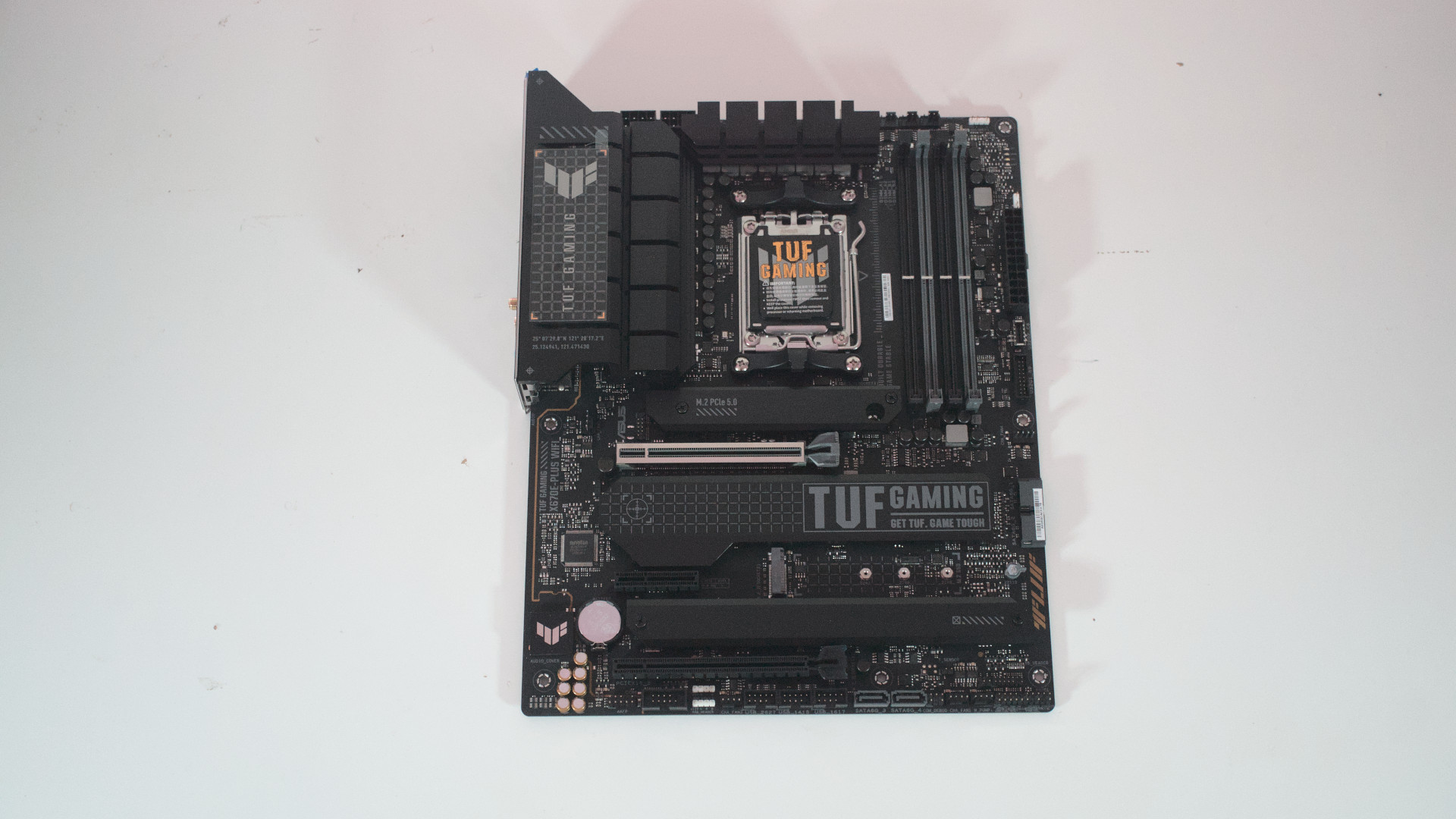
ASUS makes its ROG Strix products look the part for gamers. I’m talking aggressive styling, plenty of RGB lighting, and strong use of the color red. TUF products appear slightly little more industrial and the ASUS TUF Gaming X670E-Plus WiFi is no exception.
It’s a good-looking motherboard, based on an entirely black PCB. It’s fairly low-profile too. Only M.2 heatsink plates, the VRM heatsink, and the integrated I/O shield really stand out from the board. The rest of the motherboard is very subtle, which would work well in various PC build designs.
Because it’s using the X670E chipset, we’re able to use a GPU and one M.2 SSD at PCIe 5.0 speeds. This board has two full x16 slots (only one is PCIe 5.0), one x4 slot, as well as four M.2 SSD slots (only one is PCIe 5.0). This is plenty of internal expansion for rapid-fast PC builds, particularly for gaming.
Being an X670E motherboard, we’ve got full support for AMD Ryzen 7000 series processors and up to 128GB of DDR5 RAM. As aforementioned, system memory is officially supported up to speeds of 6400MT/s, and the 16-phase power delivery design ensures stable and reliable power is delivered across the board.
Having more of the PCB exposed to the elements actually makes the ASUS TUF Gaming X670E-Plus WiFi easier to build a PC as there aren’t as many cover shrouds to contend with for access to specific areas of the board. Supplying power to the CPU are two 8-pin connections in the top-left corner.
We then have the CPU socket below, some fan headers to the right for hooking up the chosen CPU cooler, as well as four DIMM slots. Because this is a more affordable motherboard, there are fewer fan and AIO headers here than compared to more expensive ROG boards. The same goes for the omission of features like an OLED status indicator for troubleshooting.
We’ve got three expansion slots and four M.2 slots for installing plenty of components to the board. One of the M.2 slots does not have a heatsink bracket but is limited to PCIe 4.0 speeds so heat shouldn’t be an issue. Interestingly, the four SATA ports are split with two on the usual right position and the other two on the bottom among the USB headers.
ASUS TUF Gaming X670E-Plus WiFi: Performance
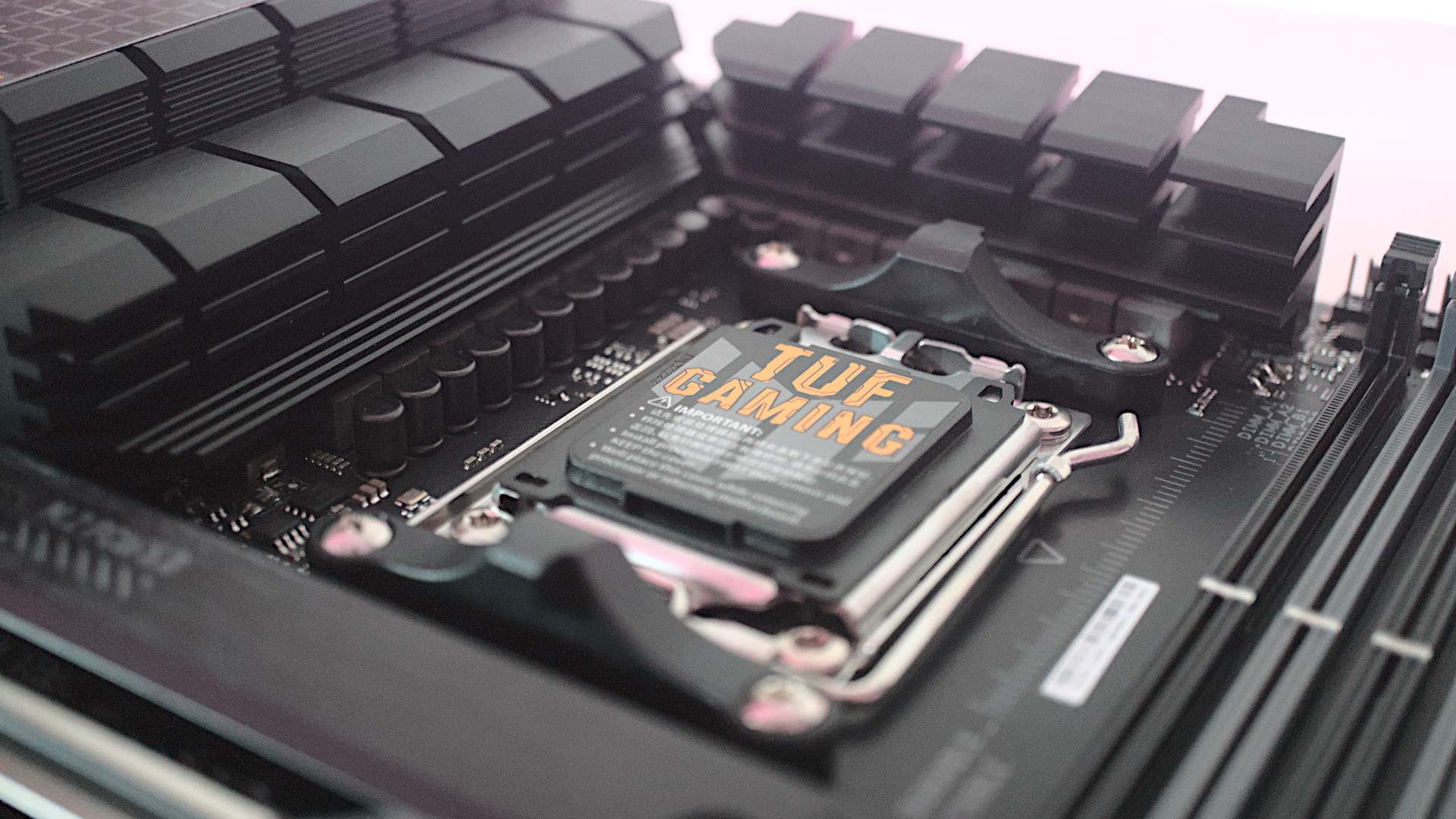
Performance between motherboards can differ but the average PC owner won’t notice too much of a difference with default profiles applied for RAM and other components. So long as you’re using the correct chipset for your GPU, SSDs, and other parts (matching PCIe generations, etc.), your CPU should perform as designed and marketed by AMD.
We tested the AMD Ryzen 7 and AMD Ryzen 9 processors with the ASUS TUF Gaming X670E-Plus WiFi and the results were excellent. Having everything set to about the same as the Gigabyte and ASUS X670E boards we reviewed prior, there was only a slight dip in synthetic benchmarks between them and this more affordable ASUS board. Overclocking will be a different story, however.
AMD’s Ryzen 7000 series of processors perform well in a variety of applications, be it gaming, creative software, or general computing. Running the processor at stock settings with an overclocked memory profile applied on the DDR5 modules, we saw positive results with the motherboard. As always, the ASUS UEFI is easy to use and makes it possible to quickly apply various settings.
ASUS TUF Gaming X670E-Plus WiFi: Competition
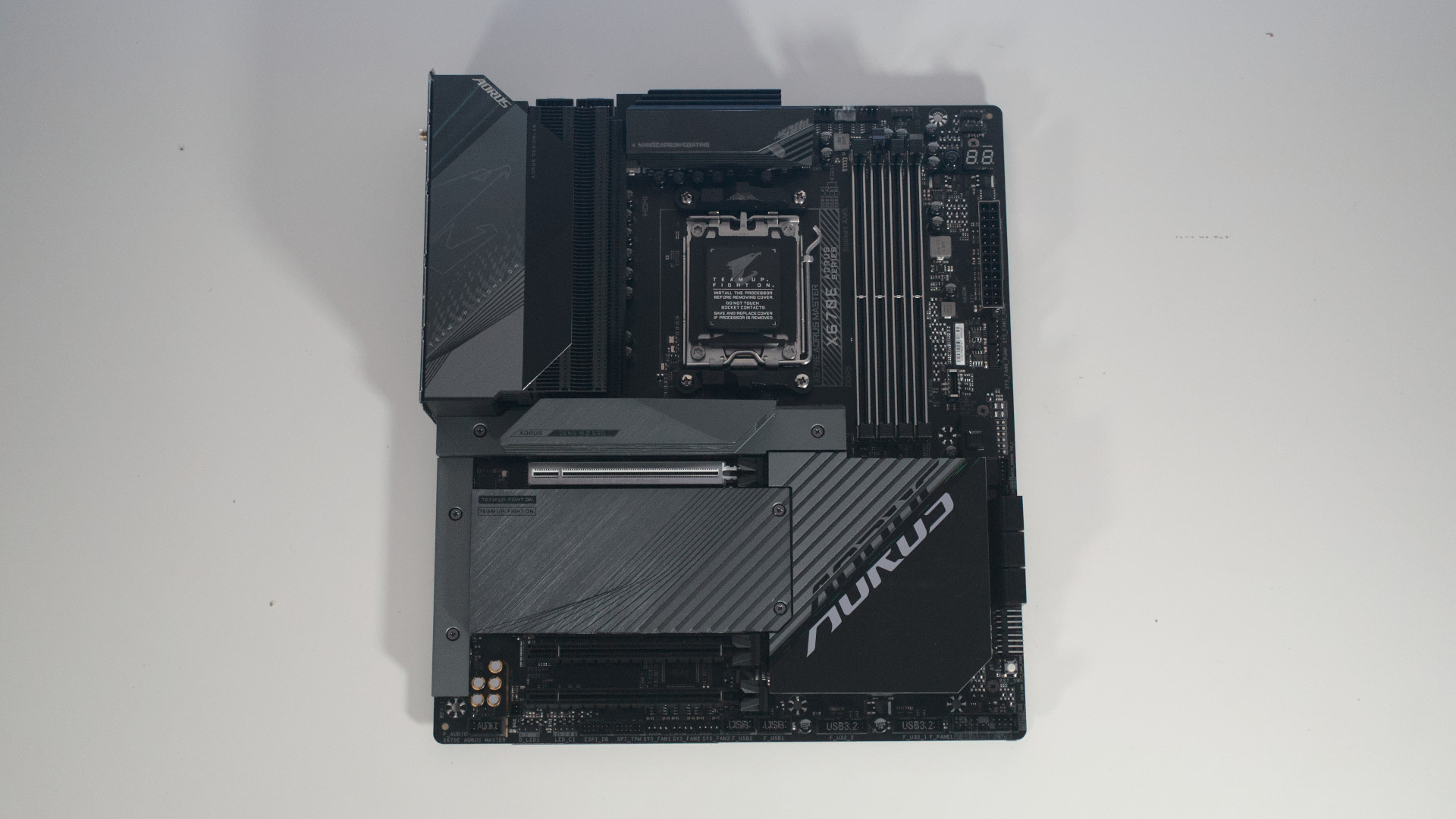
There’s some serious competition for the ASUS TUF Gaming X670E-Plus WiFi. Even against other ASUS AM5 motherboards, there’s a good selection of boards that can be used with AMD Ryzen 7000 and newer processors. The ROG CROSSHAIR X670E EXTREME is about as extreme as one can get, but it also costs considerably more.
If you’re not too fussed about the X670 “Extreme” moniker, there are internal alternatives such as the ASUS PRIME X670-P WIFI, which will be more than enough for all processors from this generation. Looking further afield and we’ve got some fine competitors like the Gigabyte X670E Aorus Master, ASRock X670E Steel Legend, and MSI PRO X670-P WiFi.
Motherboards with the AMD B650 chipset should also be considered, only really lacking in slightly weaker I/O, PCIe channels, and some other areas.
ASUS TUF Gaming X670E-Plus WiFi: Should you buy?
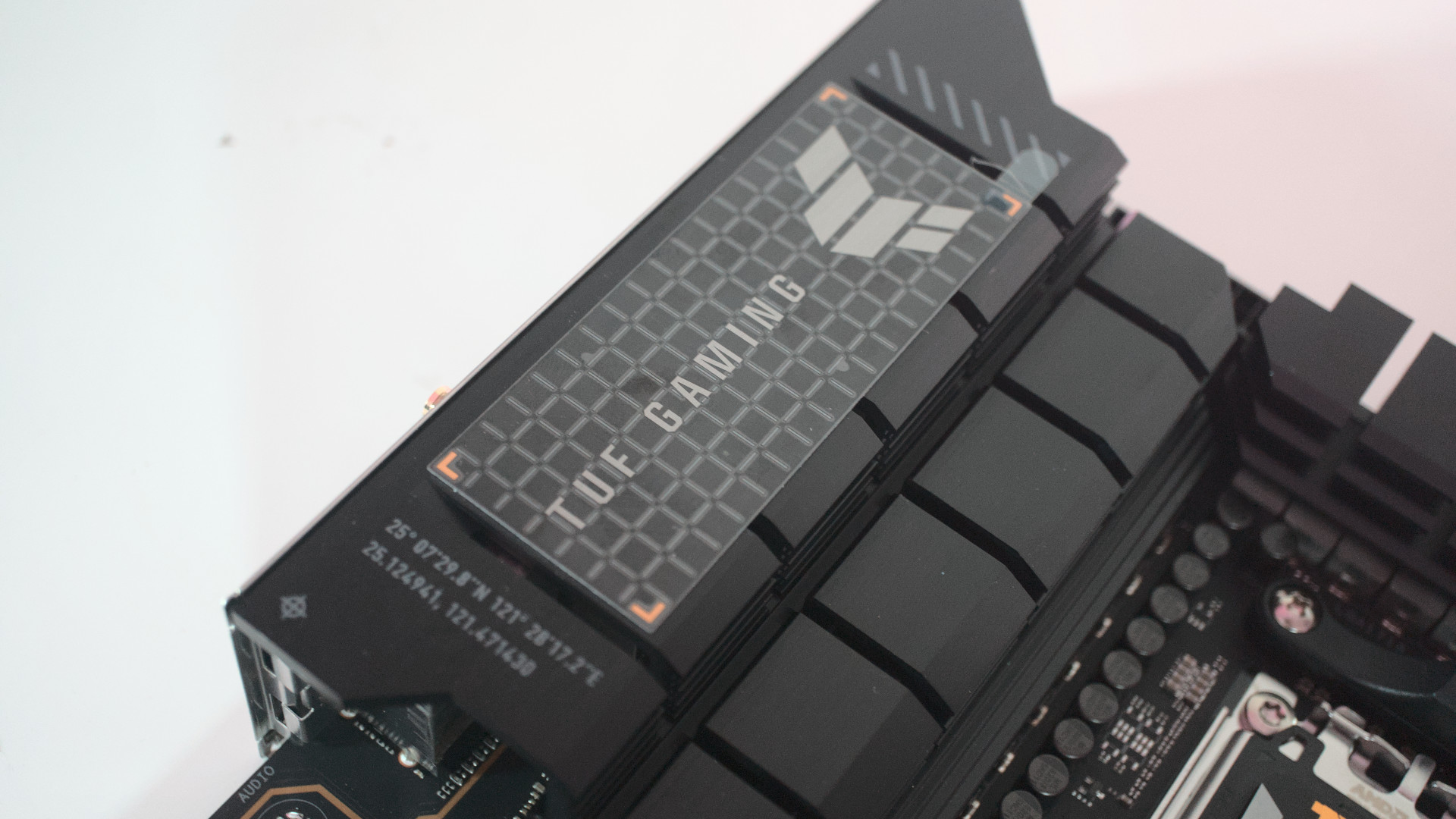
Who it’s for …
- Those who plan on building an AMD Ryzen 7000-powered PC.
- Those who have or plan on buying and using DDR5 RAM.
- Those who won’t be overclocking the CPU with liquid nitrogen.
- Those who have multiple M.2 SSDs.
Who it isn’t for …
- Those who don’t want to swap out their CPU and/or RAM.
- Those who want the absolute best performing AM5 motherboard.
Should you be on the hunt for a slightly more reasonably priced X670E motherboard, the ASUS TUF Gaming X670E-Plus WiFi may be just what you’re searching for. It has better specs than some X670 motherboards (hence the “Extreme” suffix) but doesn’t cost anywhere near more premium boards.
There’s plenty to love about the TUF Gaming X670E-Plus WiFi even if it’s not part of the flagship ROG family of products. Because we’re utilizing the AMD X670 chipset, ASUS has been able to work in support of DDR5 RAM and PCIe 5.0 (for expansion cards and SSDs). There’s also a solid power phase delivery design in place.
The VRM setup and passive cooling are more than enough to handle even a slightly overclocked AMD Ryzen 9 7950X though you won’t want to use this board for anything involving liquid nitrogen and enthusiast applications with considerably more power being transferred across the PCB.
For the average Joe, this is one excellent mid-range AM5 motherboard from ASUS.
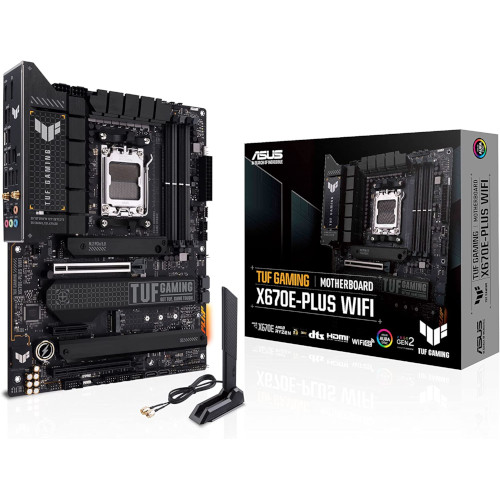
ASUS TUF Gaming X670E-Plus WiFi
The ASUS TUF Gaming X670E-Plus WiFi is a capable mid-range motherboard with the flagship AMD X670 chipset. Whether you’re building a PC with a Ryzen 5 or Ryzen 9, this motherboard is a reliable foundation to kick things off.





